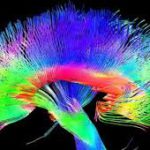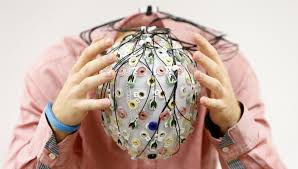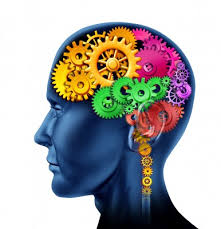As neuroscience explodes with new ideas, new technologies, and new findings, ordinary people have a hard time absorbing the information that emerges. We are learning more details about networks in the cortex responsible for different kinds of thinking, reflecting, observing, and we know about regions lying beneath the cortex responsible for emotion and motivation. What are we supposed to do with this knowledge? Why is it so hard to integrate into our daily lives?
 I think the main reason is that our thinking and feeling, our personalities, and consciousness itself are so immediate, so personal, that we can’t entertain the idea that they emerge from electrochemical pulses among a bunch of cells. Our experience is so intricate, nuanced, and private — it’s difficult to imagine that it comes from a remarkable bodily organ. This paradox has been a real problem for philosophers ever since the time of the Greeks. It was made famous by Descartes, who said there must be some part of us that does not come from our bodies: this was termed “mind-body dualism.”
I think the main reason is that our thinking and feeling, our personalities, and consciousness itself are so immediate, so personal, that we can’t entertain the idea that they emerge from electrochemical pulses among a bunch of cells. Our experience is so intricate, nuanced, and private — it’s difficult to imagine that it comes from a remarkable bodily organ. This paradox has been a real problem for philosophers ever since the time of the Greeks. It was made famous by Descartes, who said there must be some part of us that does not come from our bodies: this was termed “mind-body dualism.”
What’s that got to do with addiction? you might ask. The thing is, most of us continue to see addiction as a personal problem, a nastiness that comes from our inner being, a reflection of the dark places we’ve been and the  dark things we’ve thought and done. The dishonesty that often comes with addiction (the lying, stealing, etc) feels like an incontrovertible personal failure, unforgiveable (at some level) because…well because shouldn’t I be a better person?
dark things we’ve thought and done. The dishonesty that often comes with addiction (the lying, stealing, etc) feels like an incontrovertible personal failure, unforgiveable (at some level) because…well because shouldn’t I be a better person?
The darkness, confusion, tragedy and destruction do belong to us. There’s no denying it. But they also belong to a brain that is an organ of our bodies. The brain functions  according to the codes built into it over millions of years of evolution, most critically: attempt to minimize suffering and maximize relief. Stave off deprivation. And it puts those requirements above other goals, like obeying social conventions. This brain of yours has been adjusting to whatever has happened to you every single day since (and before) your birth. And some of what’s happened to you has no doubt been frightening, uncontrollable, and perhaps deeply traumatic.
according to the codes built into it over millions of years of evolution, most critically: attempt to minimize suffering and maximize relief. Stave off deprivation. And it puts those requirements above other goals, like obeying social conventions. This brain of yours has been adjusting to whatever has happened to you every single day since (and before) your birth. And some of what’s happened to you has no doubt been frightening, uncontrollable, and perhaps deeply traumatic.
Through all this your brain continues to adapt.
To accept that our thoughts and actions really do arise from our brains does not get rid of personal responsibility — that’s not what I’m trying to say. But it can be a crucial step in understanding that the things we do that we’d  rather not do aren’t simple choices between right and wrong. They arise from a sequence of developmental adaptations in an organ that does its best to keep us going in a hugely challenging world.
rather not do aren’t simple choices between right and wrong. They arise from a sequence of developmental adaptations in an organ that does its best to keep us going in a hugely challenging world.
To accept that your addictive impulses come from your brain opens an avenue to self-forgiveness. But remember: brains have developed incredible capacities to think, plan, and reason about consequences. Self-control is one of the brain’s crowning achievements. And since addiction leads irrevocably to suffering, maybe you can work with your brain, sort of as a partner, to make your life a lot happier than it is.
………………..
………………..
P.S. Thanks for the comments so far, guys. I love this community. Meanwhile, I wanted to share a link to a work-in-progress dramatization (a theatre piece) of a very serious gambling problem, especially in the UK and Australia. The problem is the deployment of rapid-fire electronic gambling machines called Fixed Odds Betting Terminals — a new generation of machines that can take enormous amounts of money in a very brief time. These things are destroying lives as quickly as any drug. Take a look at this.
By the way, the title “Crack Cocaine” is a misnomer — they plan to change it soon.

Leave a Reply to Clifford Cancel reply